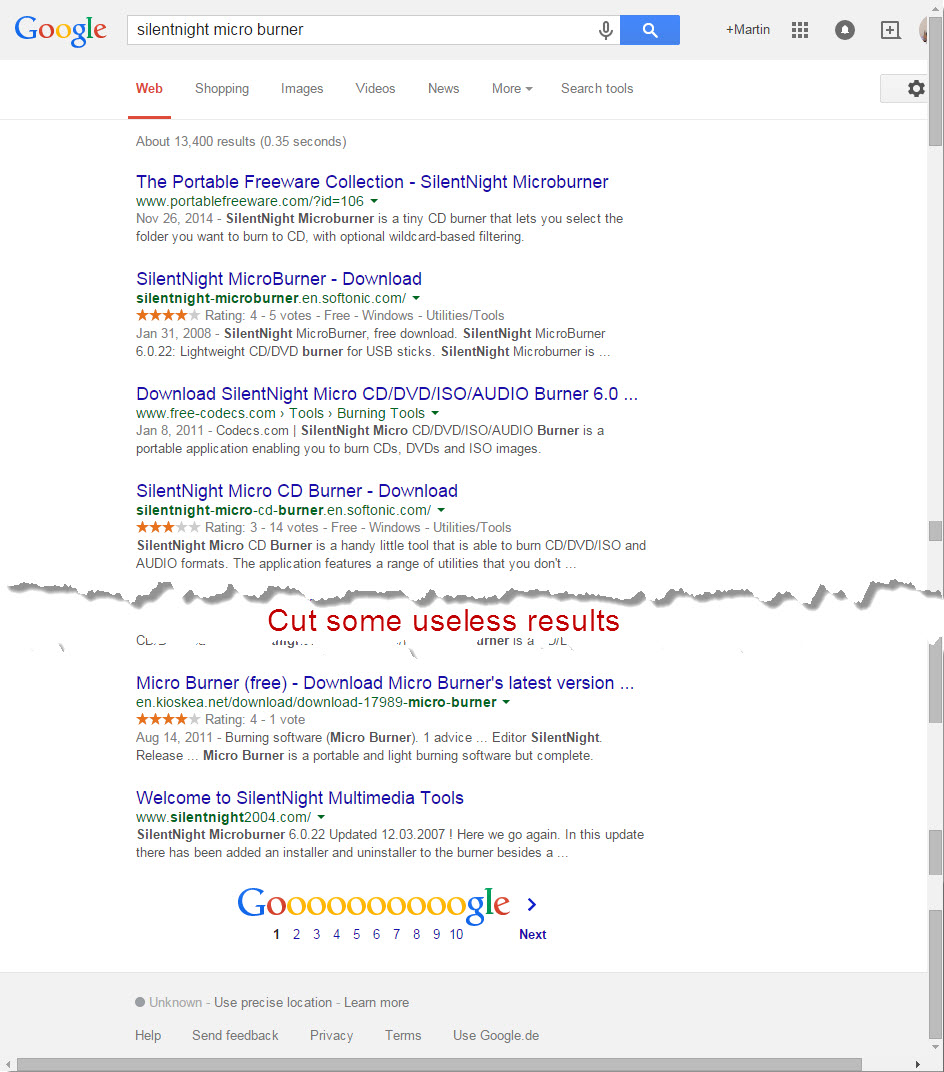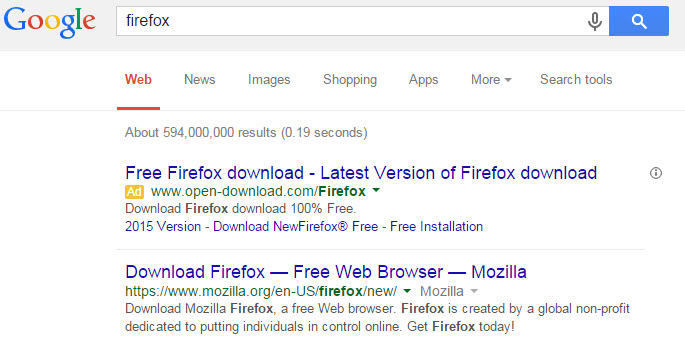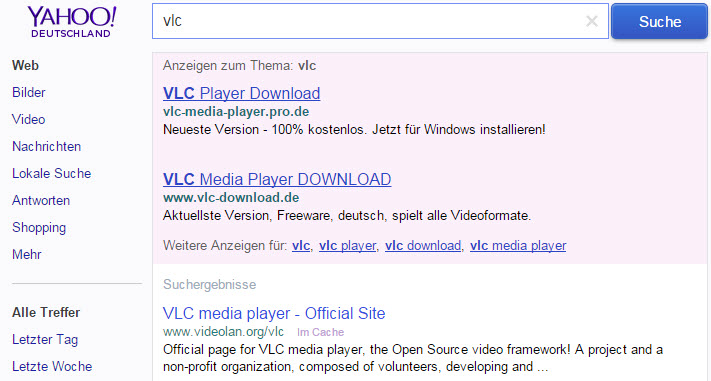Why search engines are as bad as download sites when it comes to freeware
There are many free programs out there on the Internet that are great: Firefox, Thunderbird, VLC Media Player, CCleaner, Revo Uninstaller, QuietRSS, WinSCP or KeePass are just some examples of programs that you can download and use for free.
While it should be pretty straightforward to download these programs, it is often not the case. Sure, if you know the url they are offered on then you go there and download them, but if you don't, you have to use search engines or visit a download site to get them.
Many download sites use download wrappers these days that contain adware offers. This is done to increase revenue even though it is communicated as being something that is done for the user as it secures the download.
There are ways to bypass those wrappers on most download sites but the links that lead to direct downloads are often smaller or in the background while the main download link advertising the wrapper is in your face on the page.
In addition to all that, they do display ads on their pages that may deceive users as well. If you see two, three or four download links on a page, which is the right one?
The How To Geek addressed the issue and while I think that it went a bit overboard with the claim, it is without doubt a big issue for users on the Internet.
Search engines are not any better however and there are actually two reasons for this.
- Depending on their ranking of sites for the keyword you have entered, the main project website of the software may not be listed first or highlighted at all.
- Ads displayed on top or the side of the results may deceive users.
1. Problematic rankings

This is less of an issue for popular programs. If you search for Firefox or VLC, company websites are usually placed in the first spot in the organic rankings.
If you search for lesser known programs, say Silentnight Micro Burner however, you will often notice that other sites are listed before the author's site.
A quick search on Google for the term lists several download portals, Softonic, Afterdawn or Chip before the author's own website. In fact, it is placed in position 16 currently on Google which means that you won't find it at all on the first page of results.
Google is not the only search provider that is delivering weak results when it comes to software that is not overly popular.
On Bing, it is listed in position five of the results while Softonic, Portable Freeware, Image results and Softonic again make the first four spots.
DuckDuckGo lists the program in the first spot, Startpage just like Google in position 16, and Yahoo Search in position one as well.
If you search for different program names, you may get different results but the core issue remains:
Search engines don't rank the official homepage of a software project in the number one spot all the time.
2. Advertisement
Advertisement are display to earn revenue and I'm the last one on earth to call out companies for displaying ads on their sites.
The problem is not that advertisement is displayed but the nature of some of the ads. They can deceive users into downloading other software or paying for downloads that should be free.
If you search for Firefox on Google, you may get download ads displayed on top of the organic search results.

If you heard about Firefox and want to download it but don't know anything about the company that produces it, then you may click on the first result in search.
Google Search is not the only search that is affected by this. If you search for VLC on Yahoo for example, you get two ads on top as well before the real homepage is displayed.

The same is true for results on Bing, Startpage or DuckDuckGo. All may display ads on top of the organic results that may confuse or even deceive users.
What happens if you download a program from these sites? It varies depending on where you download it from.
I downloaded VLC from one of these sites and instead of getting the media player, I was bombarded with adware offers in the installer.
Even worse, it tried to install a program on the system even though I declined all offers in the installer. What I did not get in the end was VLC.
Your results may vary depending on where you live and what you search for but it is without question that ads can be very problematic in search engines.
Make sure you can distinguish between organic results and advertisement on search result pages.
Closing Words
You are probably wondering what you can do about it. There is not much that you can do unfortunately.
You can use the few remaining software portals that don't use download wrappers, Major Geeks for example, to avoid these.
As far as search is concerned, the best way to avoid ads is to make sure you can distinguish between advertisement and organic results. Ad-blockers may help you as well as they can block ads from showing up in first place on these sites.
Now You: Have tips or a story you want to share about this? I would love to hear them.
This article was first seen on ComTek's "TekBits" Technology News

- Log in to post comments